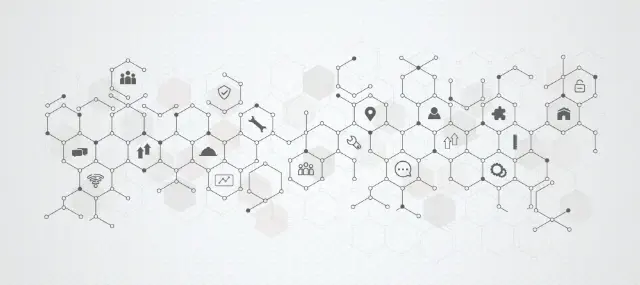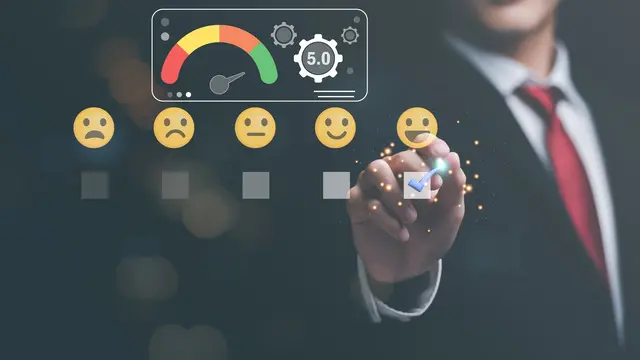The Power of Reconciliation Automation: A Lifeline for Retail Efficiency
In the fast-paced world of retail, efficiency and accuracy are crucial for success. Reconciliation automation offers a lifeline to retailers, streamlining a traditionally time-consuming and error-prone process.
Traditionally, reconciliation involves manually comparing financial records to identify discrepancies. This process is not only tedious but also prone to human error, leading to potential financial losses and operational inefficiencies. Reconciliation automation leverages the power of Python, AI, and cloud-based solutions to automate this process, making it faster, more accurate, and less prone to human error.
By automating data collection, matching transactions using algorithms, and generating reconciliation reports, reconciliation automation frees up valuable time for retail professionals, allowing them to focus on more strategic tasks. This automation not only improves efficiency but also enhances accuracy, reducing the risk of financial errors and improving overall operational performance.

The Symphony of Python, AI, and Cloud for Reconciliation Automation
Unattended Bots: Automating the Mundane with Python
Python shines in developing unattended bots that can automate mundane reconciliation tasks without human intervention. These bots can tirelessly collect data from various sources, match transactions using predefined algorithms, and generate detailed reconciliation reports. By automating these repetitive processes, unattended bots free up retail professionals to focus on more value-added activities.
Attended Bots: Tailored Automation with Human-in-the-Loop
Attended bots complement unattended bots by providing real-time assistance to human reconcilers. Built with Python, attended bots offer a high level of customization, allowing them to be tailored to specific reconciliation processes and workflows. They can guide reconcilers through complex tasks, provide instant access to relevant data, and automate repetitive manual actions, significantly enhancing efficiency and accuracy.
Cloud Platforms: A Powerful Orchestra for Automation
Cloud platforms such as AWS, Azure, and GCP offer powerful automation orchestration capabilities that far surpass traditional RPA/workflow tools. They provide a comprehensive suite of services for data integration, workflow management, and AI/ML integration. By leveraging cloud platforms, retailers can seamlessly integrate reconciliation automation into their existing IT infrastructure and scale their automation efforts as needed.
AI: Enhancing Accuracy and Handling Exceptions
AI plays a pivotal role in reconciliation automation by enhancing accuracy and handling edge cases that may arise during the reconciliation process. Techniques such as image recognition can automate the processing of scanned invoices and receipts, while natural language processing (NLP) can extract key data from unstructured documents. Generative AI can also be used to generate synthetic reconciliation data for testing and training purposes.
By incorporating AI into reconciliation automation, retailers can improve the overall accuracy and robustness of the reconciliation process, reducing the risk of errors and ensuring timely and reliable financial reporting.

Building the Reconciliation Automation Engine with Python and Cloud
The journey of building a robust reconciliation automation engine with Python and cloud involves several key subprocesses:
-
Data Collection: Python scripts can be used to extract transaction data from various sources such as sales platforms, payment processors, and bank statements. Cloud platforms provide data integration services that can simplify the process of connecting to these disparate systems and extracting data in a structured format.
-
Data Matching: Once the data is collected, Python algorithms can be applied to match transactions across different systems. These algorithms can use a combination of deterministic and probabilistic matching techniques to identify matching transactions and potential discrepancies. Cloud platforms offer scalable compute resources that can handle large volumes of data and perform complex matching operations efficiently.
-
Reconciliation Reporting: The matched transactions and identified discrepancies are then used to generate reconciliation reports. Python can be used to create customized reports that meet the specific needs of the retail business. Cloud platforms provide reporting and visualization services that can help present the reconciliation results in an easy-to-understand format.
Data Security and Compliance
Data security and compliance are of paramount importance in the retail industry. Python and cloud platforms offer robust security features to protect sensitive financial data. Python provides built-in encryption libraries and supports industry-standard security protocols. Cloud platforms offer a range of security services such as encryption, access control, and audit logging to ensure the confidentiality, integrity, and availability of data.
Python vs. No-Code RPA/Workflow Tools
While no-code RPA/workflow tools offer a low-code/no-code approach to automation, they often lack the flexibility and scalability required for complex reconciliation processes. Python, on the other hand, provides a powerful and versatile programming language that allows for the development of tailored automation solutions that can handle the unique challenges of reconciliation in the retail industry.
Algorythum’s Approach
Algorythum takes a Python-first approach to reconciliation automation because we recognize the limitations of off-the-shelf automation platforms. Our clients have expressed dissatisfaction with the performance, scalability, and customization options of these platforms. By leveraging Python and cloud technologies, Algorythum delivers tailored reconciliation automation solutions that meet the specific needs of our retail clients, ensuring accuracy, efficiency, and compliance.

The Future of Reconciliation Automation
The future of reconciliation automation holds exciting possibilities for further enhancing the efficiency and accuracy of reconciliation processes in the retail industry. Here are a few potential extensions to the proposed solution:
-
Integration with AI and Machine Learning: AI and machine learning techniques can be leveraged to improve the accuracy and efficiency of reconciliation automation. For example, AI algorithms can be used to automatically detect and resolve common reconciliation discrepancies, reducing the need for manual intervention. Machine learning models can also be trained to identify patterns and trends in reconciliation data, providing valuable insights for improving financial performance.
-
Real-Time Reconciliation: By leveraging cloud-based technologies and streaming data pipelines, reconciliation automation can be extended to provide real-time reconciliation capabilities. This would allow retailers to identify and resolve discrepancies as they occur, ensuring the accuracy and integrity of financial data in near real time.
-
Predictive Analytics: Predictive analytics can be used to identify potential reconciliation issues before they occur. By analyzing historical reconciliation data and identifying patterns, retailers can proactively take steps to prevent errors and improve the overall efficiency of the reconciliation process.
Subscribe to Algorythum
To stay updated on the latest trends and advancements in reconciliation automation and other industry-specific automation solutions, subscribe to our newsletter at algorythum.com/subscribe.
Contact Us for a Free Feasibility and Cost Estimate
If you are interested in exploring how reconciliation automation can benefit your retail business, contact our team today at algorythum.com/contact to schedule a free feasibility assessment and cost estimate. Our experts will work with you to understand your specific requirements and develop a tailored solution that meets your needs.

Algorythum – Your Partner in Automations and Beyond
At Algorythum, we specialize in crafting custom RPA solutions with Python, specifically tailored to your industry. We break free from the limitations of off-the-shelf tools, offering:
- A team of Automation & DevSecOps Experts: Deeply experienced in building scalable and efficient automation solutions for various businesses in all industries.
- Reduced Automation Maintenance Costs: Our code is clear, maintainable, and minimizes future upkeep expenses (up to 90% reduction compared to platforms).
- Future-Proof Solutions: You own the code, ensuring flexibility and adaptability as your processes and regulations evolve.









